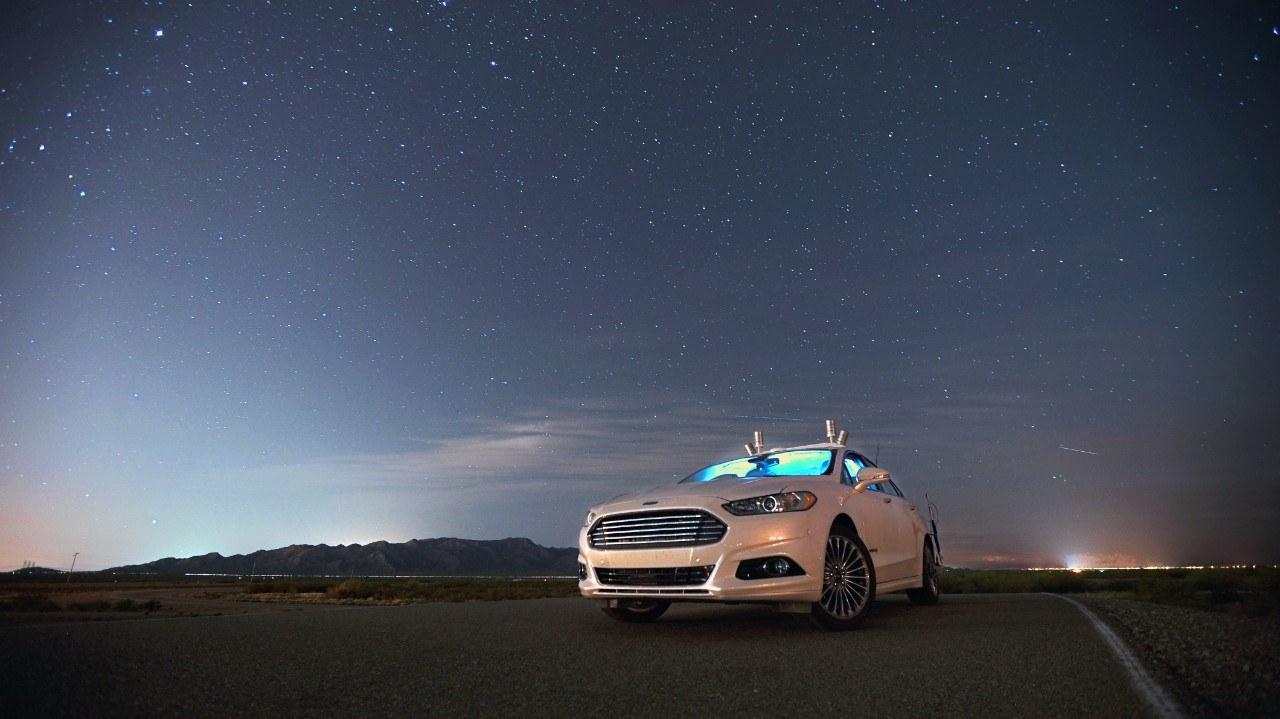
Ford Motor Co. made a big announcement this week. According to CEO Mark Fields: “Ford will be mass-producing vehicles with full autonomy, within five years. That means there will be no steering wheel, no gas pedals and no brake pedals. A driver is not going to be required.”
While other auto and tech companies are clearly working in this area, this announcement goes the furthest so far.
CEO Elon Musk says Tesla will have full autonomous capability by 2018, claiming that you’ll be able to “summon” your car in New York while you’re in LA, and it will drive itself there to meet you. But Tesla dos not claim this will be a fully-implemented, mass-produced capability. Some Tesla models already have autonomous driving features. But after news of the first autopilot crash fatality, the company has been careful to say these features are considered to be part of a Beta test, and drivers are advised to keep their hands on the wheel at all times.
Ford's new vehicle will be available in 2021, as part of the company's Smart Mobility initiative. It will be a Level 4 autonomous vehicle and will have no steering wheel, Ford says. The vehicle will be aimed at ride-hailing or smart-shuttle applications, Ford Chief Technology Officer Raj Nair and Ken Washington, Ford VP of research and advanced engineering, said at a press conference in Palo Alto, California, on Tuesday. They also mentioned the possibility of an autonomous cargo van for parcel delivery.
Nair quoted CEO Mark Fields, who said, “We see autonomous vehicles as having as significant an impact on society, as Ford’s moving assembly line did, more than a hundred years ago.”
Meanwhile, GM, which recently acquired Cruise Automation, began testing autonomous versions of its all-electric Chevy Bolt in Scottsdale, Arizona, last week. GM recently tried to acquire the ride-hailing company Lyft, in which it currently owns a 9 percent stake.
But unlike GM and Tesla, Ford will not necessarily use an EV as its platform for this autonomous vehicle. While acknowledging that the technology being developed could work with any type of powertrain, there are good reasons why a hybrid might be the best fit for this application. As Washington pointed out, all the electronics required to make a vehicle autonomous amount to a significant power drain. Therefore, in a ride-hailing (e.g. Uber) type of scenario, it might make more sense to use a hybrid vehicle, when the lost productivity due to frequent recharging stops is factored in.
Work on the project will take place in Palo Alto, where Ford plans to double its workforce which now stands at 130.
Several new partnerships were also announced. These include:
- Velodyne: Lidar for distance sensing
- SAIPS: Computer vision and machine learning
- Nierenberg Neuroscience: Machine vision
- Civil Maps: High-resolution 3-D mapping
Because of the high level of integration and the tight feedback loops involved, Ford will produce much of the software itself, though its partners will contribute, the automaker said.
CEO Mark Fields concluded: “We’re dedicated to putting on the road an autonomous vehicle that can improve safety and solve social and environmental challenges for millions of people – not just those who can afford luxury vehicles.”
Image courtesy of Ford Motor Company: Editorial Use Only

RP Siegel (1952-2021), was an author and inventor who shined a powerful light on numerous environmental and technological topics. His work appeared in TriplePundit, GreenBiz, Justmeans, CSRWire, Sustainable Brands, Grist, Strategy+Business, Mechanical Engineering, Design News, PolicyInnovations, Social Earth, Environmental Science, 3BL Media, ThomasNet, Huffington Post, Eniday, and engineering.com among others . He was the co-author, with Roger Saillant, of Vapor Trails, an adventure novel that shows climate change from a human perspective. RP was a professional engineer - a prolific inventor with 53 patents and President of Rain Mountain LLC a an independent product development group. RP was the winner of the 2015 Abu Dhabi Sustainability Week blogging competition. RP passed away on September 30, 2021. We here at TriplePundit will always be grateful for his insight, wit and hard work.














